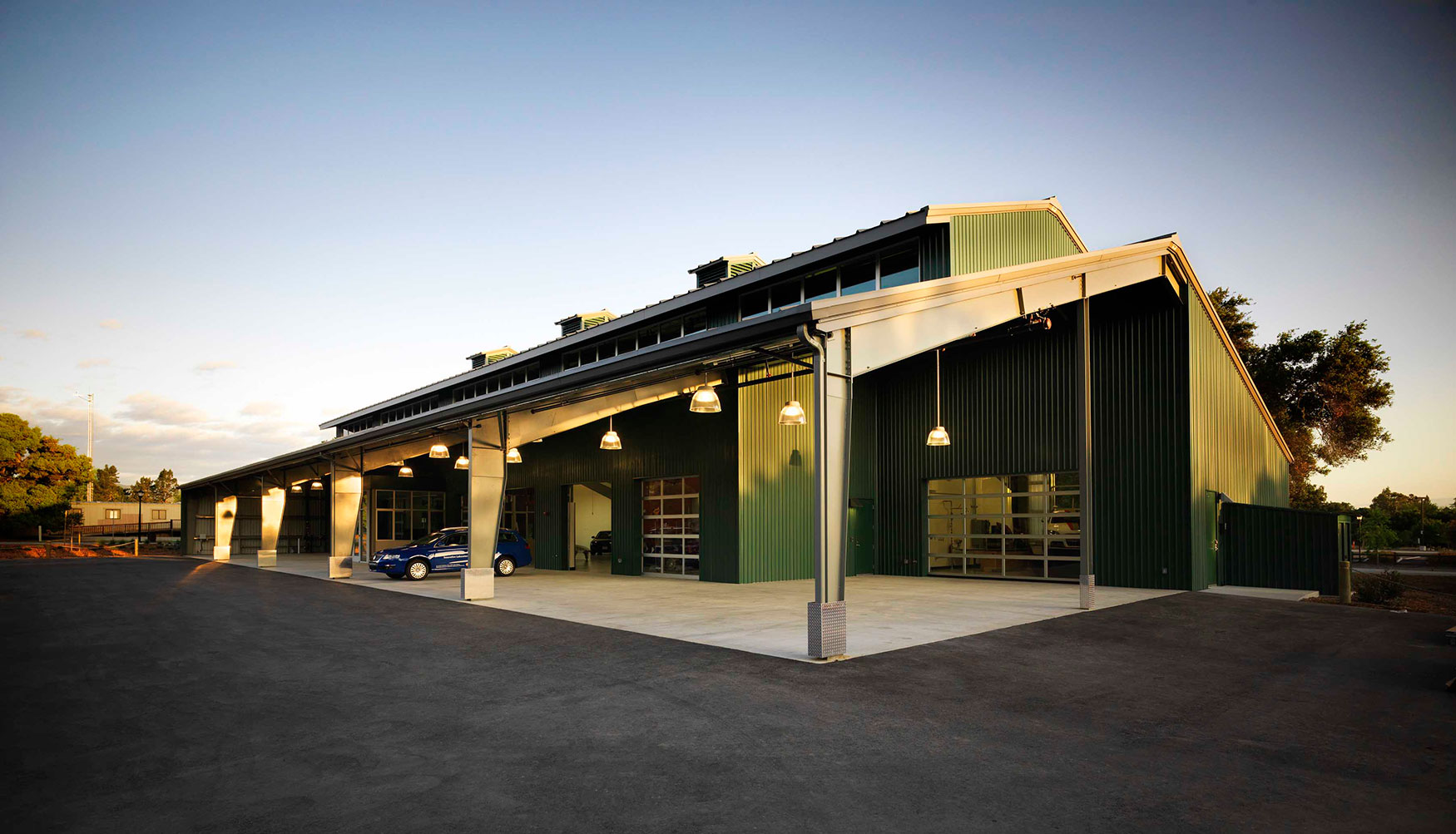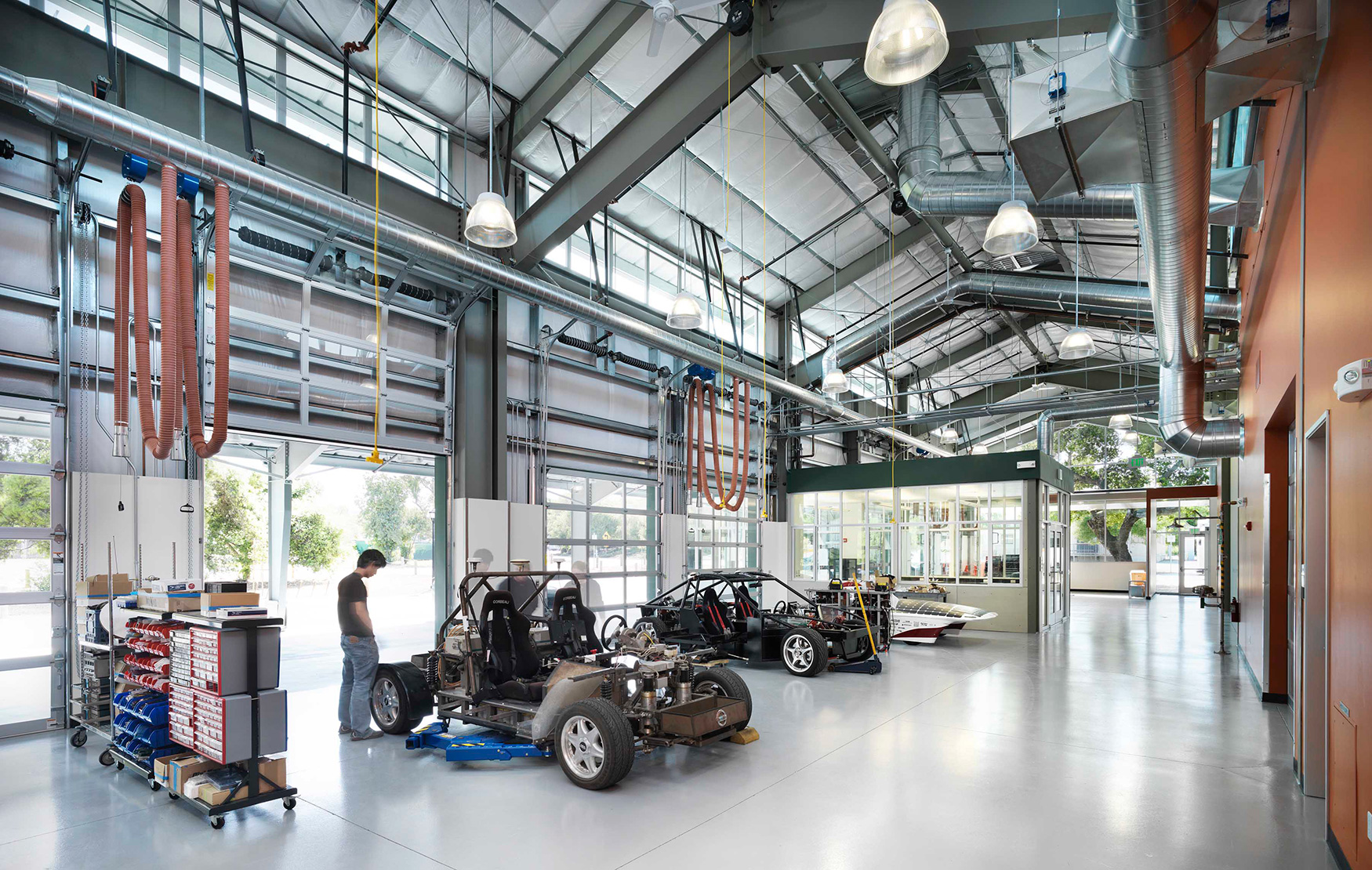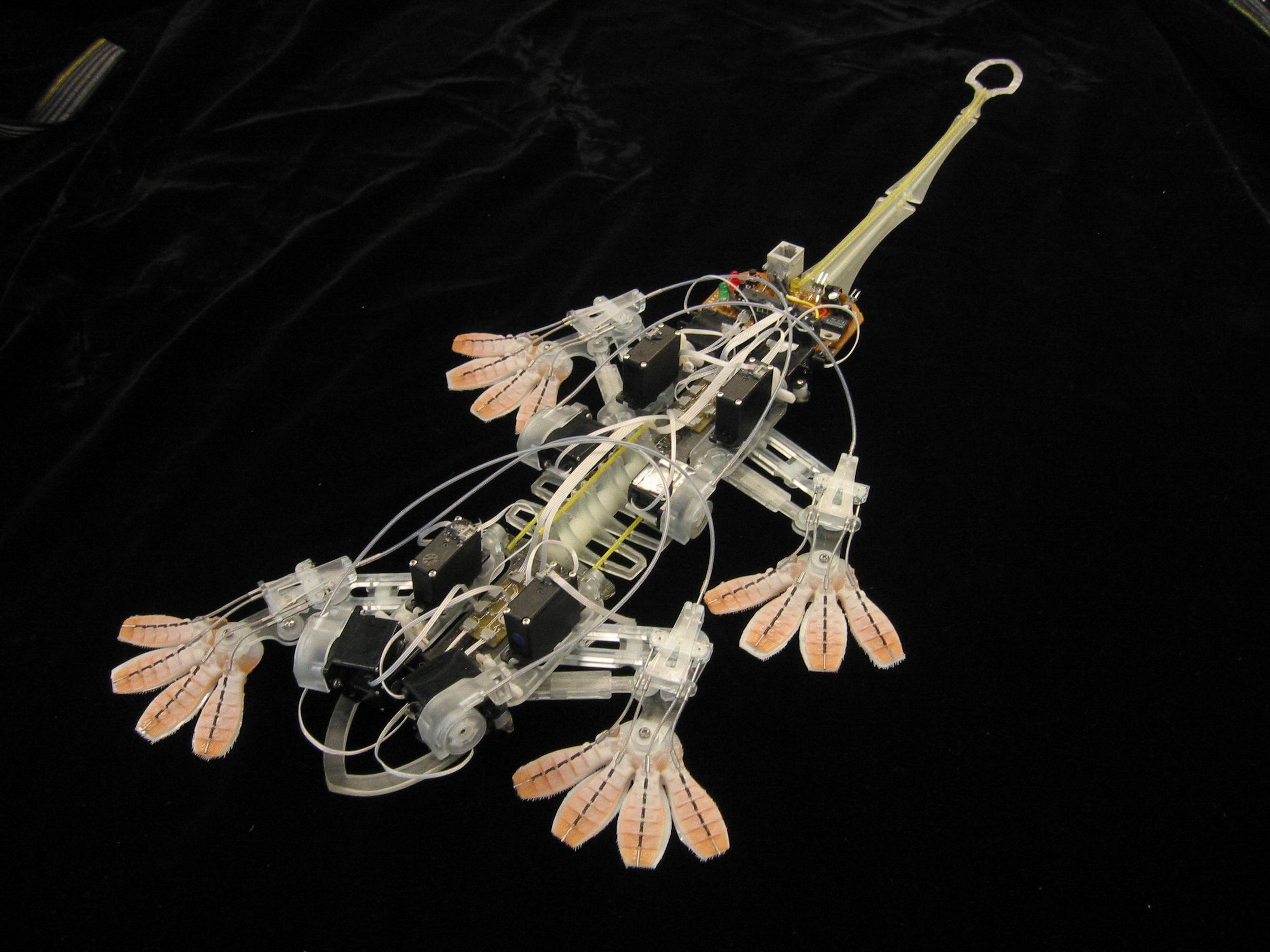Stanford Lab Tours
Center for Automotive Research at Stanford (CARS)
The Center for Automotive Research at Stanford (CARS) brings together researchers, students, industry, government and the community to enable a future of human-centered mobility. Understanding how people and machines work together has never been so important than when building vehicles of the future. CARS supports educational experiences for students, infrastructure for research and events that bring students and campus researchers together with industry professionals and the broader Stanford mobility community.
Launched in 2008, CARS was founded by Chris Gerdes, Professor, Mechanical Engineering, Sebastian Thrun, Professor-Research, Computer Science and Cliff Nass, Professor, Communication. Researchers and vehicles affiliated with CARS are located at the Automotive Innovation Facility, which houses the Volkswagen Automotive Innovation Lab (often referred to as 'VAIL'), a state-of-the-art vehicle research facility where interdisciplinary teams can work on projects that move human-centered mobility forward.
Time Slots
Monday (9/23) : 17:30~18:00 /// 18:00~18:30 /// 18:30~19:00
Tuesday (9/24) : 17:00~17:30 /// 17:30~18:00 /// 18:00~18:30
Getting To CARS
Tours will depart from the registration desk 5 minutes before the designated time slot. A student volunteer will guide you to the car service that will transport you to the Center of Automotive Research at Stanford.
MECHANICAL ENGINEERING RESEARCH LAB (MERL)
The Mechanical Engineering Research Lab (MERL) at Stanford University is a world-class research facility that brings together a diverse range of specialized labs to tackle complex challenges in mechanical engineering. It serves as a dynamic space where cutting-edge technologies are developed and interdisciplinary research flourishes. MERL hosts several distinct labs, each focusing on unique areas of mechanical engineering:
-
Biomimetic Dexterous Manipulation Lab (BDML): This lab is focused on designing robots and mechanical systems that mimic biological principles, especially in manipulation and gripping. Researchers develop robotic hands and other dexterous devices capable of complex interactions with objects, inspired by the mechanics of human and animal movement.
- Collaborative Haptics and Robotics in Medicine (CHARM) Lab: The CHARM Lab is at the intersection of robotics and medicine, focusing on the development of robotic and haptic systems that improve human-machine interaction. Their innovations have led to breakthroughs in surgical robotics, medical training simulations, and assistive technologies for rehabilitation.
- Shape Lab: Dedicated to exploring the design, fabrication, and control of shape-changing structures and materials, the Shape Lab investigates how objects can adapt their form to meet functional requirements. This work spans applications from reconfigurable robots to adaptive architecture and shape-shifting devices.
In addition to these labs, MERL facilitates research in areas such as fluid dynamics, thermodynamics, biomechanics, and energy systems.
Time Slots
Monday (9/23) : 18:00~18:30
Tuesday (9/24) : 17:30~18:00
Getting To MERL
Attendees will need to walk (~10 minutes) or drive (~5 minutes) to the Mechanical Engineering Research Lab. For those walking, a student volunteer will guide to MERL, leaving from the registration desk 10 minutes before the time slot.Tours will commence from the main entrance




